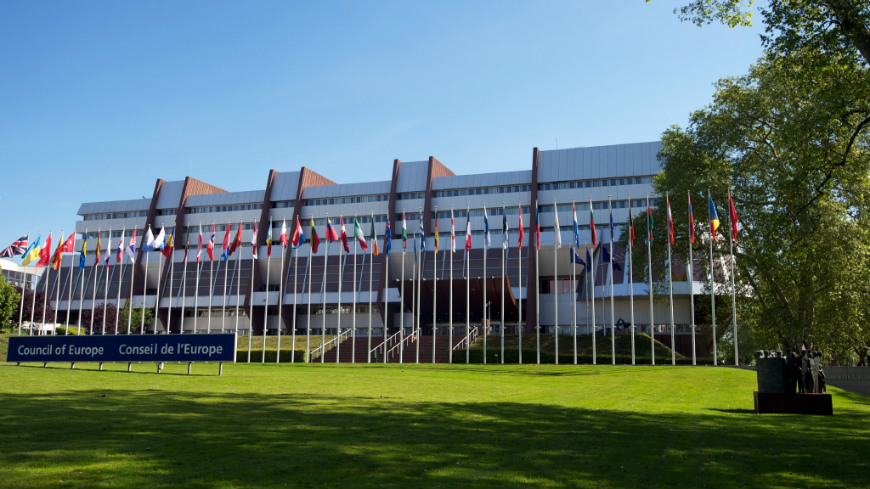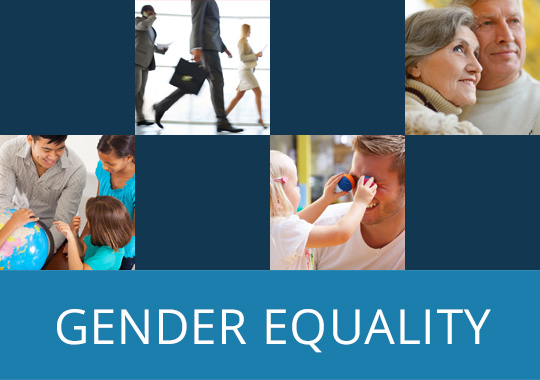Council of Europe standards and institutional setting

The Council of Europe was instrumental in developing the concept of gender mainstreaming from the 1990’s onwards. This work led to the adoption of the definition of gender mainstreaming used within the Council of Europe and by many organisations and countries:
In 1998, the Committee of Ministers of the Council of Europe adopted a Recommendation on gender mainstreaming. A gender mainstreaming strategy is implemented in the standard-setting, monitoring work and co-operation activities of the Council of Europe. The Council of Europe has adopted the widely used “dual approach”, which combines: a) specific policies and actions for the advancement of women, including positive action, and b) gender mainstreaming. Gender mainstreaming is one of the strategic objectives of the Council of Europe Gender Equality Strategy 2018-2023. Various standards and recommendations of the Council of Europe support the implementation of a gender mainstreaming approach in different areas.
With relation to standard-setting and monitoring, gender equality issues are integrated through the activities of relevant committees (e.g. studies, meetings, and inclusion of gender equality-related topics in monitoring questionnaires). Gender mainstreaming is also an increasingly important aspect of the Council of Europe co-operation activities[GC1] . It means integrating a gender equality perspective at all stages of project planning, implementation and evaluation, in a wide range of areas.
Standards:
- Recommendation CM/Rec(2017)9 of the Committee of Ministers to member States on gender equality in the audio-visual sector
- Recommendation CM/Rec(2015)2 of the Committee of Ministers to member States on gender mainstreaming in sport (Adopted by the Committee of Ministers on 21 January 2015 at the 1217th meeting of the Ministers' Deputies) - Spanish
- Recommendation CM/Rec(2015)3 of the Committee of Ministers to member States on the access of young people from disadvantaged neighbourhoods to social rights (Adopted by the Committee of Ministers on 21 January 2015 at the 1217th meeting of the Ministers' Deputies)
- Recommendation CM/Rec(2013)1 of the Committee of Ministers to member States on gender equality and media : English - French - Portuguese - Spanish - Croatian - Greek
- CM/Rec(2008)1 Recommendation of the Committee of Ministers to member states on the inclusion of gender differences in health policy
- CM/Rec(2007)13 Recommendation of the Committee of Ministers to member states on gender mainstreaming in education adopted by the Committee of Ministers on 10 October 2007 and its explanatory memorandum - Croatian - Spanish
- Recommendation No. R (98) 14 of the Committee of Ministers to Member States on Gender Mainstreaming
- CM/Del/Dec(98)628 appendix 2 16 avril 1998 Message of the Committee of Ministers to Steering Committees of the Council of Europe on Gender Mainstreaming
Institutional setting for gender mainstreaming at the Council of Europe
A specific institutional setting was put in place at the Council of Europe in order to facilitate the integration of a gender mainstreaming perspective throughout the Organisation. The Council of Europe Transversal Programme on Gender Equality, launched in 2012, is the framework for the implementation of gender equality standards in member States, including gender mainstreaming.
The Council of Europe Gender Equality Strategy guides the activities of the Council of Europe in the area of gender equality. Achieving gender mainstreaming in all policies and measures is one of its six objectives.
Three main actors are tasked with the implementation of gender mainstreaming:
- The Gender Equality Commission (GEC) and its secretariat (GE Unit).
- Gender Equality Rapporteurs.
- The Gender Mainstreaming Team.
The Gender Equality Commission (GEC) is composed of members of the GEC appointed by the 47 member states of the Council of Europe. The GEC was created to help ensure the mainstreaming of gender equality into all Council of Europe policies. The GEC provides advice, guidance and support to other Council of Europe bodies and to member states on issues related to gender equality and the empowerment of women.
Gender Equality Rapporteurs (GERs) are appointed among the members of the steering committees and other intergovernmental structures of the Council of Europe. GERs are “gender equality ambassadors”, their role is to initiate discussions and activities on gender equality and to ensure the effective integration of a gender equality perspective in the work of their respective committee. Currently, 50 GERs have been appointed.
The Gender Mainstreaming Team is composed of staff members of the Council of Europe whose mission consists in implementing gender mainstreaming in all the different sectors of the Organisation.
Gender mainstreaming within Council of Europe co-operation activities
The Council of Europe undertakes co-operation activities in member states and non-member states in its neighbourhood with the aim to help these countries reach standards in relation to human rights, the rule of law and democracy.
The Office of the Directorate General of Programmes (ODGP) designs and co-ordinates the implementation of country-specific action plans and framework co-operation documents in the member States of the Council of Europe and in its neighbourhood and ensures strategic planning, mobilises resources and supports the implementation of co-operation activities. The ODGP is also responsible for coordinating the 17 Council of Europe Offices and Programme Offices, which play an active part in identifying and implementing projects. As part of the larger effort of the Council of Europe, ODGP strives to take into consideration the concerns, perspectives and needs of women and men is part of all stages of cooperation programmes and projects with an aim for them to contribute to achieving gender equality but also to make them more effective and impactful. The Directorate together with the country and programme offices help mainstream gender equality at all stages of project management through different tools. The aim is also to build capacities in mainstreaming gender equality in co-operation, to promote gender equality further across the Organisation and to ensure a coherence of approach at both policy and programme levels.
Gender mainstreaming at the Council of Europe Development Bank
The Council of Europe Development Bank integrated gender equality as a cross-cutting theme and a screening criterion for the development of new lending projects in the new Development Plan 2017-2019. The Bank will “deploy efforts for the identification and mainstreaming of gender equality actions during the appraisal of its projects in an effort to influence gender dynamics, reduce inequalities and improve the social outcome of its investments”.



